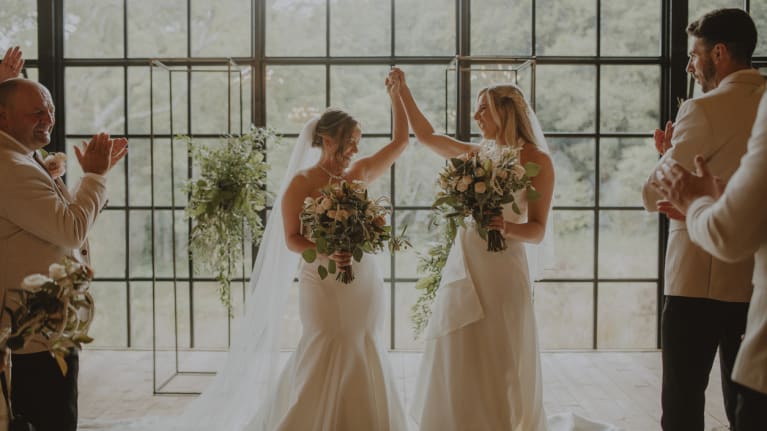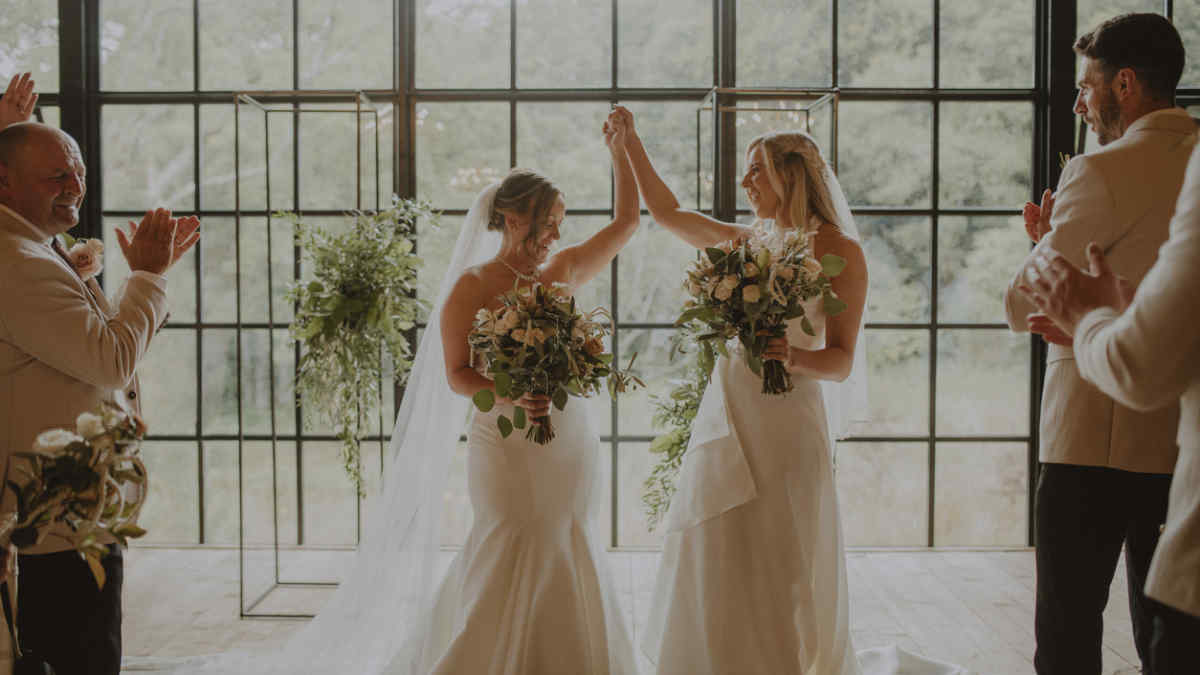

?The U.S. Supreme Court has ruled in favor of a Colorado website designer who refuses to make wedding websites for same-sex couples due to her Christian beliefs about marriage. In a 6-3 ruling on June 30, the court found the website designer’s free speech rights trumped the state’s legal protections against discrimination.
The ruling in 303 Creative v. Elenis applies nationwide to businesses that sell creative goods or services to the public.
The website designer, Lorie Smith, sued Colorado preemptively because her Christian beliefs conflicted with the state’s antidiscrimination law, which protects LGBTQ+ individuals from discrimination.
“Colorado seeks to force an individual to speak in ways that align with its views but defy her conscience about a matter of major significance,” Justice Neal Gorsuch wrote in the majority opinion. “The First Amendment envisions the United States as a rich and complex place where all persons are free to think and speak as they wish, not as the government demands.”
In a dissenting opinion, Justice Sonia Sotomayor wrote, “Today, the court, for the first time in its history, grants a business open to the public a constitutional right to refuse to serve members of a protected class … The immediate, symbolic effect of the decision is to mark gays and lesbians for second-class status. In this way, the decision itself inflicts a kind of stigmatic harm, on top of any harm caused by denials of service.”
About half the states have laws that specifically prohibit discrimination against LGBTQ+ individuals in public accommodations, such as retail stores, restaurants, hotels and movie theaters. Public accommodation laws ensure equal access and equal dignity for protected groups, and preventing discrimination is a compelling government interest, Sotomayor wrote.
Smith wanted to avoid potential sanctions for violating Colorado’s law, which could include compulsory participation in remedial training, filing periodic compliance reports and paying monetary fines, according to court documents.
“No public accommodations law is immune from the demands of the Constitution,” Gorsuch wrote. “Public accommodations statutes can sweep too broadly when deployed to compel speech.”
However, Sotomayor argued, Colorado’s law “targets conduct, not speech, for regulation, and the act of discrimination has never constituted protected expression under the First Amendment.”
Creative Work Not an ‘Ordinary Commercial Product’
The court distinguished businesses that use “expressive designs” or “expressive activity” from other places of public accommodation, which don’t carry free speech protections. It concluded Smith’s website designs were original and customized creations, rather than an “ordinary commercial product.”
“Doubtless, determining what qualifies as expressive activity protected by the First Amendment can sometimes raise difficult questions. But this case presents no complication of that kind,” Gorsuch wrote.
He cited the work of speechwriters, muralists, movie directors and artists as examples of expressive activity that retains free speech protections.
“The decision is narrow and will affect those businesses that provide original, customized, expressive services that require creators or speakers to engage in speech for pay,” said Hannah Reisdorff, an attorney with Clark Hill in Phoenix, Ariz. The vast majority of businesses do not provide creative goods or services and would likely fall outside the scope of this decision, she said.
The ruling “does not constitute a blank check to engage in discrimination,” said Katie Eyer, a professor at Rutgers Law School in Camden, N.J. It applies only “where a business offers services that are effectively its own speech, and where accepting a particular customer would require it to articulate a message that it disagrees with.”
Therefore, the case “should have little or no impact on businesses in their capacity as employers, because the court’s rationale would not extend to the act of employment discrimination. [The ruling] does not afford protections to employers who wish, even for expressive reasons, not to hire members of a protected class.”
Instead, the case is “a reminder that antidiscrimination laws, like other important laws, are still subject to some First Amendment constraints,” said Eugene Volokh, a professor at the UCLA School of Law in Los Angeles.
Nonnie Shivers, an attorney with Ogletree Deakins in Phoenix, said, “In light of recent decisions, private employers may wish to revisit their religious accommodation policy and accommodation process. Also consider whether the organization should clarify its policies and trainings on nondiscrimination.”
Shivers added that the 303 Creative decision “is forecast to have ripple effects, including about expansion to other protected classes and impacting other civil rights, but the impact on private employment may intersect most with religious accommodations under the more onerous test clarified by the Supreme Court” in Groff v. DeJoy, a case the high court decided one day before it decided 303 Creative.

